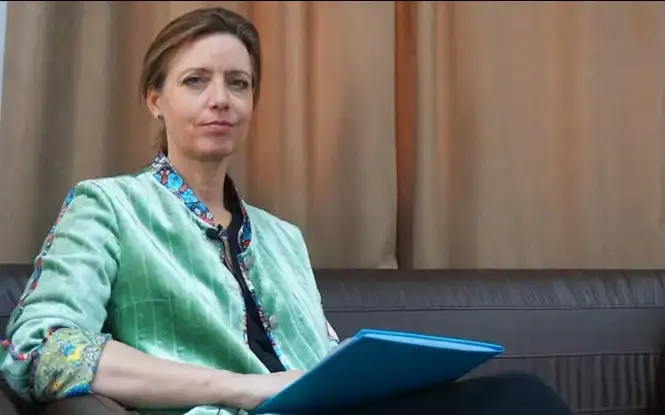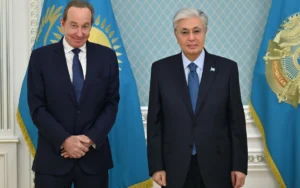UN Applauds Kazakhstan’s Legislation Protecting Victims of Domestic Violence

Astana, The Gulf Observer: The United Nations (UN) has lauded Kazakhstan for its progressive step in adopting legislation aimed at safeguarding victims of domestic violence. Michaela Friberg-Storey, the UN Resident Coordinator for Kazakhstan, hailed the move as a significant advancement in combating gender-based violence, as reported by the UN News Center.
On April 15, Head of State Kassym-Jomart Tokayev signed into law the “On amendments to some legislative acts of the Republic of Kazakhstan on ensuring women’s rights and safety of children” and “On amendments to the Code of the Republic of Kazakhstan on administrative offenses on ensuring women’s rights and safety of children.” These legislative changes represent a pivotal moment in Kazakhstan’s commitment to protecting the rights of women and children.
The newly enacted law introduces administrative penalties for offenses such as bullying and cyberbullying of minors, as well as forced expulsion of individuals under 16 from buses, among other amendments. Notably, it mandates stringent penalties, eliminating the possibility of reconciliation for perpetrators of crimes related to violence against minors. Additionally, acts causing harm to health are now subject to imprisonment rather than merely restrictive measures.
Michaela Friberg-Storey emphasized the significance of this legislation, highlighting its role in tackling all forms of gender-based violence. She commended Kazakhstan’s dedication to upholding human rights, particularly in safeguarding women, children, and vulnerable populations from domestic abuse.
By criminalizing domestic violence, Kazakhstan sends a clear message that such behavior is intolerable, with perpetrators held accountable under the law, asserted the UN Resident Coordinator. She underscored that this legislative stride not only promotes gender equality but also ensures access to justice and support services for survivors of domestic violence.
The UN, represented in Kazakhstan, extends its support to the country in effectively implementing and enforcing this law. This includes initiatives to raise awareness about domestic violence, train law enforcement and judicial personnel, and establish robust support mechanisms for survivors.
Friberg-Storey reiterated the UN’s readiness to assist Kazakhstan in its endeavors to eradicate gender-based violence and foster a culture of respect, equity, and dignity for all its citizens.
Kazakhstan’s adoption of legislation to protect victims of domestic violence reflects a commendable commitment to human rights and gender equality. The UN’s recognition of this significant milestone underscores the importance of concerted efforts in addressing and preventing gender-based violence.


